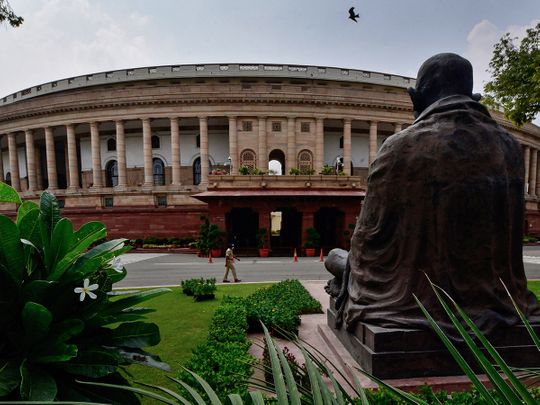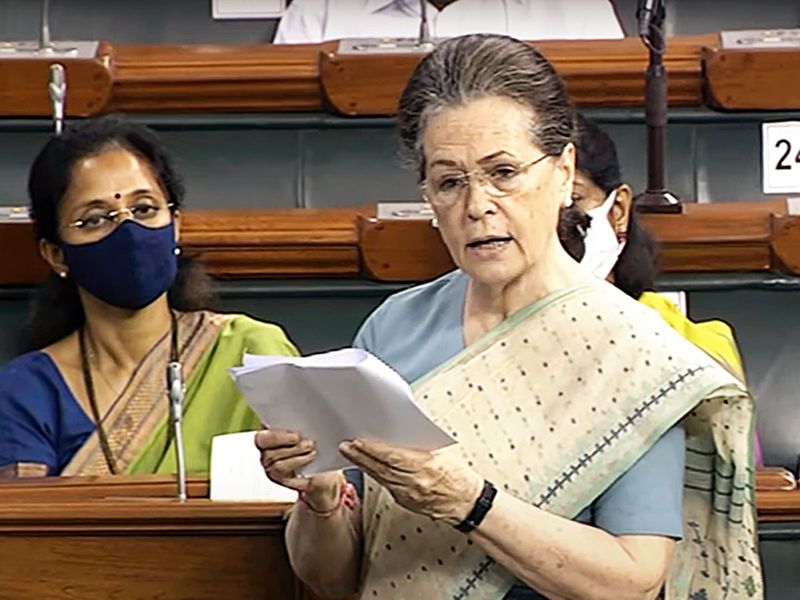
On my NDTV show last week, Congress MP Shashi Tharoor said there had been a “catastrophic breakdown” in ties between the government and the opposition. Going by the events in Parliament over the last week, this could not be more apt.
As many as 27 MPs were suspended from both Houses of India’s Parliament for “unruly” behaviour last week, 4 of these MPs from the lower house, or the Lok Sabha. The Lok Sabha members have been suspended for the rest of the monsoon session of parliament till mid August while the Rajya Sabha members were suspended for the week.
The suspensions mark a new low in already fraught ties between the government and the opposition but they are also not good for the institution of parliament. The opposition has been up in arms since this Parliament session began, demanding a discussion on rising prices.
The government said it was ready for a discussion but only when Finance Minister Nirmala Sitaraman came back after recovering from COVID. The opposition rightly pointed out that any other minister can reply to the debate on behalf of the government, as has happened several times in the past. But the government, which bears the responsibility of running the House, did not relent, leading to a stand off.
In a democracy, protest in Parliament is also a right. It is a right the BJP exercised freely when IT was in opposition, with Arun Jaitley famously saying once ““Parliament’s job is to conduct discussions. But many a time, Parliament is used to ignore issues and in such situations, obstruction of Parliament is in the favour of democracy. Therefore parliamentary obstruction is not undemocratic.”
The suspension of the MPs was totally disproportionate. Data complied by ‘The Print’ news portal shows that under the BJP government, suspensions of MPs has gone up 170% compared to the UPA government’s tenure.
At a time when the space to hold the government accountable is shrinking, the only real institution left to ask any questions of the executive is parliament. But here too, that space is shrinking as a government with a brute majority pushes through important legislation without much debate or discussion. We saw the consequences of that with the fiasco of the farm laws.
Suspension should be a tool which is sparingly used. But unfortunately it has become the norm now.
The new low in government opposition ties was marked by another event last week- an ugly confrontation on the floor of the Lok Sabha between Congress president Sonia Gandhi and Union minister Smriti Irani.

The Congress claims Smriti Irani was aggressive and rude, telling Sonia Gandhi, “You don’t know me” and Sonia Gandhi saying “Don’t talk to me”. It ended with some rather nasty heckling of the Congress President by BJP MPs and she was escorted out by women MPs from her party and others like Supriya Sule and Mahua Moitra.
It is clear that any civility in public discourse has long ended. Indian politicians may fight each other on the electoral battleground, but they had a healthy respect for each other on and off the political field. However that era seems to be over.
Smriti Irani has taken it personally when the Congress recently attacked her and her daughter over a restaurant licence in Goa, charges she strongly denied. The BJP has often gone after the Congress for personal attacks against the Prime Minister, including by Sonia Gandhi herself.
Today, any hope of a dialogue between the government and the opposition has dimmed, replaced by animosity and bitterness which is simply not good. The space to debate and discuss, to challenge the executive must widen. Instead, it is only shrinking.








